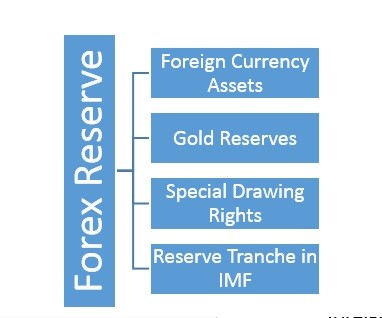2. American pressure on the issue has been rising over the last few months even as India joined Japan last week in describing North Korea as a common threat.
3. An India-Japan joint statement issued at the end of Japanese Prime Minister Shinzo Abe’s visit last week called upon North Korea to roll back its nuclear and missile programmes.
4.“They (India and Japan) pledged to work together to deal with the current serious situation and called on the international community to rigorously and fully implement relevant United Nations Security Council resolutions to maximise pressure on North Korea.”
Odisha Govt. rapped for delay in notifying Elephant Corridors
Context:
1. NGT wants govt to give a specific timeframe for completion of processes
2. The National Green Tribunal has expressed extreme disappointment over the
lethargic pace of notifying elephant corridors — fixed paths which connect traditional elephant habitats — in Odisha.
3. Adjudicating the case filed by the Wildlife Society of Orissa, Justice S. P. Wangdi,
judicial member, and P. C. Mishra, expert member, of the NGT, Eastern Zone Bench, directed the Odisha government to give a specific timeframe for completion of processes before publication of the notification in respect of the elephant corridors.
Legal sanctity:
1. In 2010, the State government had identified 14 corridors, which would not only have helped the elephants move without any disturbances, but also increased chances of exchange of genetic diversity interchange.
2. Later, another nine corridors were identified. However, the government has been dilly-dallying in notifying the corridors that would have given legal sanctity for their preservation.
3. “The State government on January 13, 2017, had categorically stated that the work of assessing habitat viability and ground-truthing of the already identified
elephant corridors had been handed over to the Asian Nature Conservation Foundation (ANCF).
4. The report in respect of which was expected to be received by early 2017.
5. This has been repeated by the government in the subsequent affidavit filed on February 20,” the order says.
Asian Nature Conservation Foundation (ANCF).
The Nature Conservation Foundation is a non-governmental wildlife conservation and research organisation based in Mysore, India.
2. They promote the use of science for wildlife conservation in India.
3. The organisation was founded in 1996.
4. Their mission is to carry out "science-based and socially responsible conservation".
Snow Leopard now not endangered
Context:
1. The conservation status of snow leopard has been improved from “endangered”
to “vulnerable”.
2. The decision was announced by the International Union for Conservation of
Nature (IUCN) – the global standard for assessing extinction risk. The status
change followed a three-year assessment process by five international experts.
3. The elegant yet elusive creatures, which live in the mountains of central Asia,
were first listed as endangered by the IUCN in 1972.
4. Scientists say they are threatened by poaching for their fur, infrastructure
developments, and climate change.
5. Usually found at elevations of 3,000-4,500m (11,480-14,760ft).
In India
Snow leopards live in the mountainous regions of central and southern Asia.
In India, their geographical range encompasses a large part of the western Himalayas including the states of Jammu and Kashmir, Himachal Pradesh, Uttarakhand and Sikkim and Arunachal Pradesh in the eastern Himalayas.
It is found in 11 countries such as Afghanistan, Bhutan, China, India,Kazakhstan, Kyrgyz Republic, Mongolia, Pakistan, Russia, Tajikistan, and Uzbekistan.
Great Himalayan National Park, Himachal Pradesh
Great Himalayan National Park, Himachal Pradesh
Gangotri National Park, Uttarakhand
Khangchendzonga National Park, Sikkim
Namdapha National Park, Arunachal Pradesh
IUCN
1.Started working from 1948: 1st Global EVS org
2. Headquarter:- @ Gland,
3. Not a part of UN
4. Official Observer Status at UNGA
5. Not only nature- others work: Gender equality & all kind
6. It led world in EVS research & conservation efforts & publishes Red data book
list: (Both Bird Animal)
7. Neutral forum for govt, NGOs, scientists, business & local com to find practical
solutions to conservation
ASTRA MISSILE
- Successful Development Trials of Astra Missile
- The final Development Flight Trials of Astra – Beyond Visual Range Air to Air Missile (BVRAAM) was conducted recently over the Bay of Bengal, Off the Coast of Chandipur, Odisha. The trials were successful.
- The missions included engagement of target at very long range, engagement of high manoeuvring target at medium range and multiple launches of missiles in salvo to engage multiple targets.
- All the sub-systems including the indigenous RF Seeker performed accurately, meeting all the mission parameters and objectives.
- It is a Beyond-Visual Range, air-to-air indigenously developed.
- The all-weather, radar homing missile has high manoeuvrability and capability to engage and destroy aerial targets at supersonic speeds.
- The 60-km plus range missile possesses Shot Kill Probability (SSKP) making it one of the most reliable in its class of weapon systems.
- The missile could be launched at different altitudes from sea level to 20 km for engaging aerial targets at various ranges.
- Apart from integrating the missile with Su-30, it is planned to be mounted on other fighter aircraft including Tejas Light Combat Aircraft, Mirage-2000 and MIG-29.
- The missile complex at Hyderabad and several DRDO laboratories in partnership with the Hindustan Aeronautics Limited and the Indian Air Force developed Astra.
Institute of National Importance (INI)
INI is a status conferred to a premier public higher education institution in India by an Act of Parliament.
It is conferred on an institution which "serves as a pivotal player in developing highly skilled personnel within the specified region of the country/state".
INIs receive special recognition and funding.
All IITs, NITs, AIIMS’, School of Planning and Architecture and Indian Institutes of Science Education and Research are considered Institutes of National Importance.
Vishwakarma Rashtriya Puraskar
- It is an award given by the Ministry of Labour and Employment.
- It is awarded in recognition of outstanding suggestions given by a worker or group of workers resulting in improvement in quality, productivity and working conditions such as safety,health and environmental conservation in the industrial undertakings.

